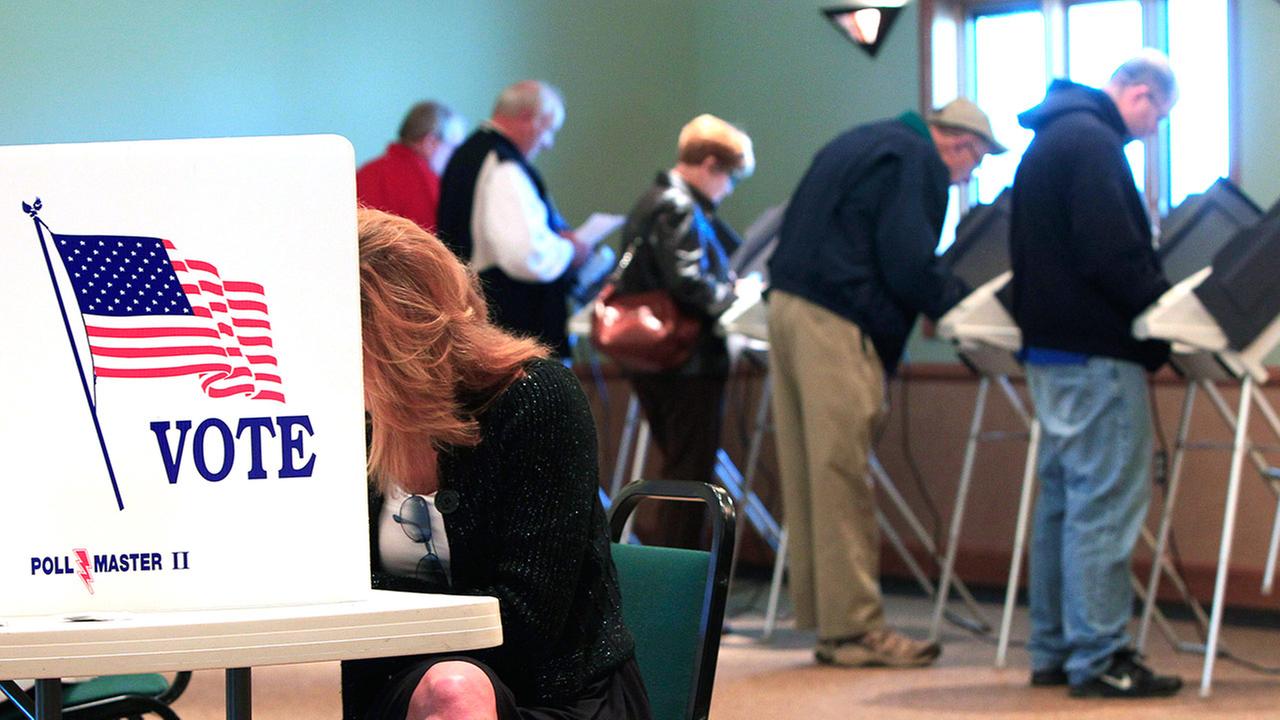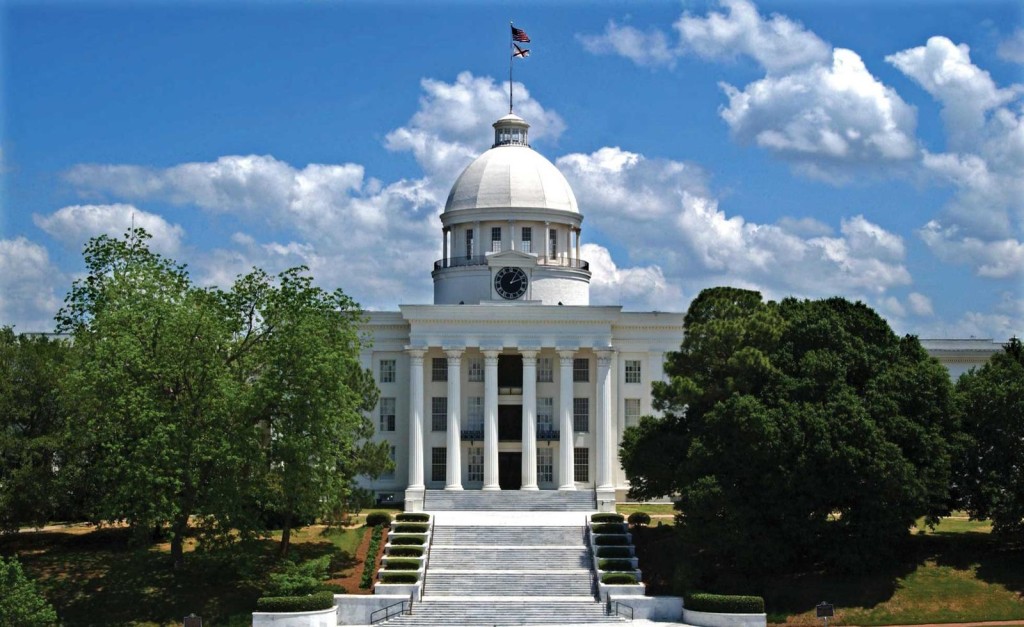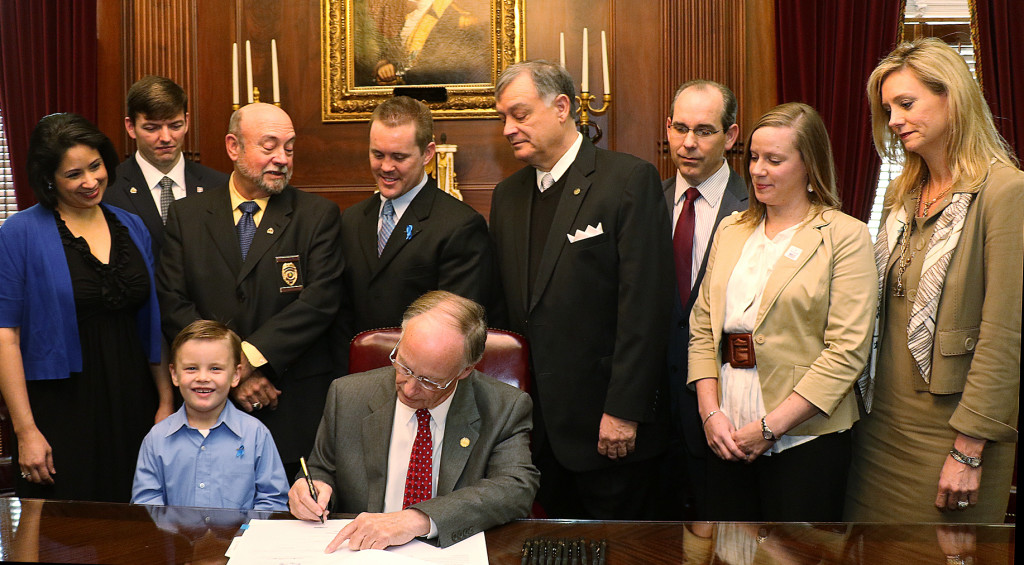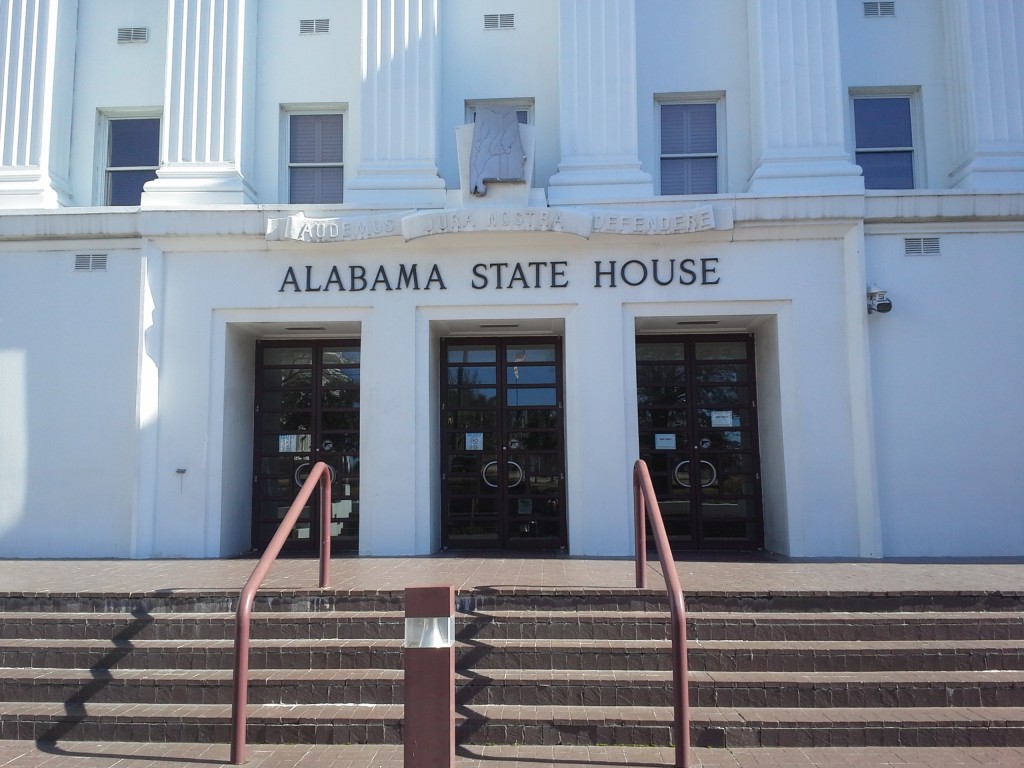Wetumpka TEA Party hosts GOP candidate meet and greet

The Wetumpka TEA Party will host the River Region Candidate Fair on Monday evening from 6:30-8:30 p.m. for candidates running in the 2018 Republican primary election. Over 40 candidates have confirmed their attendance for the event, which will be held at the Wetumpka Civic Center. Advertised as a “meet & greet,” the event will allow Alabamians to meet each candidate individually and ask them questions about the position they are seeking, rather than listen to speeches and debates. The Wetumpka TEA party will also be conducting a straw poll at the end of the night, with results posted Tuesday morning. “Our mission at the Wetumpka TEA Party is to educate citizens on national, state and local issues and help them get involved in our representative government,” said Wetumpka Tea Party founder Becky Gerritson. “It is important that people vote for their elected officials because they know what the candidates stand for and do not just rely on 30 second commercials and attractive yard signs. This is a terrific opportunity to meet the candidates who are running for an elected position, to ask them questions and understand what each candidate stands for.” The following candidates have confirmed their attendance on Monday night: CONSTITUTIONAL OFFICES Governor: Bill Hightower, Kay Ivey, Scott Dawson, Tommy Battle (will send a representative) Lieutenant Governor: Will Ainsworth, Twinkle Cavanaugh, Rusty Glover Attorney General: Chess Bedsole, Troy King, Alice Martin Auditor: Stan Cooke, Elliott Lipinsky, Jim Zeigler Secretary of State: Michael Johnson, John Merrill Treasurer: Stephen Evans, John McMillan Commissioner for Agriculture and Industries: Gerald Dial, Rick Pate (will send a representative) STATE LEGISLATURE Alabama House of Representatives 31: Dustin DeVaughn, Mike Holmes Alabama House of Representatives 88: Al Booth Alabama Senate 25: Will Barfoot, Ronda Walker Alabama Senate 30: Clyde Chambliss (Unopposed) ALABAMA COURT SYSTEM Supreme Court Chief Justice: Tom Parker AL Supreme Court Place 1: Sarah Stewart AL Court of Civil Appeals Place 1: Michelle Thomason, Pat Thetford Circuit Court 19 Judge: Bill Lewis (Unopposed) PUBLIC SERVICE COMMISSION Public Service Commission Place 1: Jeremy Oden, Jim Bonner Public Service Commission Place 2: Chip Beeker, Robin Litaker LOCAL AND CIRCUIT RACES: Elmore County Sheriff: Bill Franklin (Unopposed) Probate Judge (Elmore): Vicki Bonner-Ward, John Thornton Elmore County Commission Dist 4: Bart Mercer (Unopposed) Coroner (Elmore): Brad Linville, Jody Jeffcoat Circuit Clerk (Elmore): Michael Dozier, Angie Cruise-Gardner FEDERAL RACE U.S. Congress Dist 2: Rich Hobson, Bobby Bright, Barry Moore A flier for the event may be viewed here: River region candidate fair.
State Senate approves cost-of-living raises for state employees

State employees would receive their first cost-of-living raise in ten years under a bill approved by the state Senate on Tuesday. Lawmakers approved a three percent pay raise 28-1. Sponsored by Prattville-Republican state Sen. Clyde Chambliss, SB185 would provide the cost-of-living increase for the fiscal year beginning October 1, 2018. Gov. Kay Ivey applauded the approval of the bill. “We depend on state employees every day – after a decade without a pay increase, it is time we honor their hard work and commitment with a sensible raise,” Ivey said in a statement. “State employees are vital to good government, and I appreciate the work they do for the people of Alabama each and every day. I commend sponsor Senator Clyde Chambliss, General Fund budget chairman Senator Tripp Pittman and the members of the Senate for adopting the full three percent raise I proposed. I urge the House to move quickly and follow the Senate’s lead.” The bill now goes to the Alabama House of Representatives for consideration.
Alabama Senate anti-voyeurism bill makes ‘upskirting’ illegal

The Alabama Senate on Thursday passed a bill that would make it illegal to secretly take video or photos under a person’s clothes — a lewd act sometimes referred to as “upskirting” — without their consent in places where a person should have reasonable expectation of privacy Under existing law, it is a crime to distribute a private image with the intent to harass, threaten, coerce, or intimidate the person depicted. Prattville-Republican state Sen. Clyde Chambliss introduced SB57 to establish the crime of voyeurism in the first and second degree and provide penalties. The bill creates both a first and second degree crime of voyeurism. Under the legislation, it is a first-degree crime of voyeurism — when someone films or photographs the “intimate areas” of another person “for the purpose of arousing or gratifying the sexual desire of any person.” The bill stipulates that a first-degree crime is a Class C felony. A second-degree crime of voyeurism —when someone films or photographs another person “whether through, under, or around clothing, with the intent to distribute or disseminate the photograph or film, without that person’s knowledge and consent” — would be a Class A misdemeanor. The bill passed the Senate 27 to 0. It now moves to the House of Representatives.
Steve Flowers: Bringing Alabama sales tax into 21st-century

My tradition for over two decades has been to give my children money for Christmas. Under this system, there is no returning of items. They get what they want or need. There is no way that I would know what style of clothing, color or size they like. It works well. The most illuminating thing that occurred to me this year is that both of my daughters and my granddaughter bought all their Christmas gifts from me online. Without question, our country and state have changed dramatically technologically in my lifetime. Therefore, Alabama and other states have to change the way that sales tax is collected. States have to find a solution and the will to derive sales tax from online purchases. The legislature has wisely set up a budget reform task force to study, evaluate and come forward with long-term solutions to problems and loopholes in the law like online sales tax. The committee is headed by two stellar legislators, Sen. Clyde Chambliss (R-Prattville) and Rep. Danny Garrett (R-Trussville). This blue-ribbon panel will review and develop recommendations as to how Alabama can adjust to 21st-century budgeting. This non-collection of sales tax on online purchases is a serious problem and it perfectly illustrates how our tax system is more designed for the 20th century than the 21st. We, like many other states, are not keeping up with the technology shifts in the world. Legislators unquestionably have to re-evaluate the state’s tax structure to reflect the new online and digital economy. Rep. Garrett has wisely acknowledged, “We used to tax about two-thirds of the economy with the sales tax. Today, we tax one-third of our economy.” He further observed, “We are leaning very heavily on the income tax, and our sales tax base is eroding due to online sales.” Another issue, which will be discussed during this legislative session, is the deterioration of our transportation system in the state. This problem is not unique to Alabama. In fact, President Trump made this a hallmark issue of his campaign last year. Most Washington political observers fully expect to see a massive infrastructure package passed in a bipartisan manner early in Trump’s administration. Alabama needs to be poised to take advantage of this bonanza. The last major federal highway initiative came in the 1950s during the administration of Ike Eisenhower. It was also passed with bipartisan support. According to recent studies, 15 percent of Alabama roads and highways are in poor condition and 35 percent more are rated as fair, with 25 percent of our bridges deemed obsolete. The legislature may need to look at increasing the gas tax to take advantage of this federal windfall. More than likely, a state tax contribution will be needed to match the federal dollars. Alabama’s gas tax has not been increased since 1990. We have Richard Shelby, but he may need some help. The new Speaker of the House, Mac McCutcheon is from the Huntsville/Madison County area. The Rocket City is Alabama’s crown jewel economically. They realize the importance that adequate progressive highways are to sustained growth and prosperity. McCutcheon spearheaded the effort to increase the revenue for roads and bridges last year. About a dozen states raised the gas tax in 2016 to keep up with inflation and growth. Our neighboring state of Florida was one of them. Speaking of McCutcheon, he is adjusting well to his new role a Speaker. He is fair and even handed. His selection of Rep. Alan Boothe to be his Rules Chairman seems to be meshing well. The House leadership has changed even more dramatically since the session began. The Republican caucus has elected Rep. Nathaniel Ledbetter of Rainsville as their new Majority Leader. Ledbetter is a freshman House member and former mayor of Rainsville. Rep. Connie Rowe of Jasper will serve as Vice-Chairwoman of the Caucus. She is the first female to hold the position. Ledbetter replaces former Majority Leader Mickey Hammond of Decatur. Sen. Cam Ward has become the good shepherd, chief cook and bottle washer of the prison construction project. He has scaled back the size and scope of the original proposal. The legislature is trying to stay ahead of the federal courts on addressing the state’s prison overcrowding problem. See you next week. ___ Steve Flowers is Alabama’s leading political columnist. His weekly column appears in over 60 Alabama newspapers. He served 16 years in the state Legislature. Steve may be reached at www.steveflowers.us.
Alabama legislative preview: May 3 — May 4, 2016

Two days. That’s all Alabama’s state lawmakers have to complete their legislative priorities for the year. Some bills will end up languishing in the annals of Alabama history, while others will get their day on the governor’s desk. The entire session has been covered in the grey cloud of scandal, between accusations of Gov. Robert Bentley‘s infidelity, and the impending ethics trial of Speaker Mike Hubbard, but legislators stayed on track … mostly. Some much-debated bills like the gas tax are dead for good this year, while others, like payday lending reform and industrial hemp legalization, are walking a blade-thin line to final passage. Here is what legislators have on their plate for the final two days of the 2016 Regular Session. Here is what legislators have on their plate for the final two days of the 2016 Regular Session. House — Convenes Tuesday at 1 p.m. SB372 creates a new provision in Alabama’s controversial “chemical endangerment of a child” law, allowing the consumption of controlled substances under the “good faith” supervision of a physician. The chemical endangerment law came under fire last fall after a searing investigation by AL.com and ProPublica. Sponsored by Sen. Clyde Chambliss (R-Montgomery) in the Senate and Rep. April Weaver (R-Alabaster) in the House. SB91 regulates Payday Lenders, restricting the interest rates and fees they may charge. The bill being considered in the House Tuesday is a watered-down version of one passed by the Senate in early April. Should it pass the House it would have to be reconsidered by the Senate in the waning hours of the Session on Wednesday. Sponsored by Sen. Arthur Orr (R-Decatur) in the Senate and Rep. Danny Garrett (R-Trussville) in the House. SB268 Currently, an inmate’s eligibility for Medicaid is terminated once they are incarcerated. SB268, already passed by the Senate, would change that termination to a suspension. The bill’s sponsors argue this will help reformed convicts land back on their feet when their sentences are complete. Sponsored by Sen. Cam Ward (R-Alabaster) in the Senate and Rep. Chris England (D-Tuscaloosa) in the House. SB347 which would give the Department of Agriculture and Industries the authority to study, regulate, and tax industrial hemp, and reclassify the plant as separate from marijuana. Similar bills have been passed previously in both the House and Senate, but because they weren’t identical they must be considered again. Sponsored by Sen. Paul Bussman (R-Cullman) in the Senate, and Rep. Ken Johnson (R-Moulton) in the House. Senate — Convenes Tuesday at 1 p.m. HB204 reorders the names appearing on primary ballots in presidential election years to present elected official positions first, and delegates to the national convention last. Currently, the delegates come directly after the presidential candidates themselves, an arrangement found to be confusing for many primary voters, as they had to sift through a litany of names they didn’t recognize to find the candidates for federal and state offices. Sponsored by Rep. Randy Wood (R-Saks) HB393 is the House version of the industrial hemp bill described above. HB433 prohibits a sexually exploited child from being “adjudicated, delinquent or convicted of a crime of prostitution.” Essentially, the bill protects children who are victims of sexual crimes or trafficking from being convicted of prostitution. The bill’s sponsor is a longtime advocate for harsher penalties for sex traffickers, and has fought to protect the victims of the deplorable practice. Sponsored by Rep. Jack Williams (R-Vestavia Hills) HB98 allows qualifying retirees from the U.S. Military to obtain concealed weapons permits from their county’s sheriff at no cost to them. The Sheriff may revoke the permit if cause is found. Sponsored by Rep. David Standridge (R-Hayden)
Robert Bentley signs ‘Winston’s Law’

In a signing ceremony Tuesday afternoon, Gov. Robert Bentley signed his name to “Winston’s Law” as the bill’s namesake looked on. SB23, sponsored by Sen. Clyde Chambliss (R-Prattville) and carried in the House by Rep. Paul Beckman (R-Prattville), makes aggravated child abuse a Class A felony for children under six. The crime now carries a potential punishment of life in prison and a $60,000 fine. The bill’s name comes from an Elmore County boy whose mother was indicted for charges of chemical endangerment of a child and aggravated child abuse. During committee hearings on the bill, testimony was given that the boys injuries were so severe that pictures could not be shared with the press or the public. During the signing ceremony, Bentley joked and teased the boy and presented him with one of the pens used in signing the legislation. Further, Bentley noted that he was signing the actual bill – a departure from other ceremonies where bill copies have been used. On hand for the ceremony were Chambliss, Beckman and a host of child activists and family members. “This is a good bill,” Bentley said, thanking lawmakers for drafting the legislation. “This is an important issue dealing with the protection of our children.” Before the signing of “Winston’s Law,” prosecutors were only able to charge child abusers with lesser crimes, often resulting in a punishment not strict enough for the crime. With this legislation, prosecutors will be able to seek maximum penalties for the most vicious abusers. A second bill dealing with child abuse penalties, “Ava’s Law,” which strengthens penalties for offenders whose abuse results in the death of a child, was passed by the legislature last week.
Soda, cigarette and business tax increases on the table (again)

Wow! Well someone finally answered the question I asked a few days ago, who are the members Governor Robert Bentley was talking about when he said there were members willing to support his tax increases. Senator Clyde Chambliss stepped up and held a press conference Thursday to tout a budget proposal he said will fix the crisis and lo and behold it includes tax increases. The problem is that it includes tax increases that have already been ruled out by the majority of his colleagues and residents throughout Alabama. According to his press release Chambliss proposes, “To backfill the revenue lost to the ETF, his plan includes new revenue of $226 million to the ETF in the form of taxes on cigarettes, soft drinks, and a change to the business privilege tax. The cigarette and soft drink taxes will immediately sunset after three years to give legislators time to accomplish structural budget reform.” I know that Chambliss is active on social media. I’m wondering if he’s missed the memo that over 17,000 people have supported a Facebook page dedicated to “Stop the Alabama Beverage Tax.” Most of those people haven’t just liked the page they’ve spent time leaving strong opinions against the proposal and sharing it with their friends. I’m wondering if he’s visited their website where over 9,294 individuals and groups have stood up to say they don’t support this tax. As for cigarette taxes…that’s been tried and failed. I don’t believe that too many people have changed their minds in the last several weeks. While I give the Senator credit for coming up with a plan. I sure hope that this baseline is something others can use as a starting point for a plan that doesn’t include tax increases quite likely to fail repeatedly.
Email Insights: Sen. Clyde Chambliss proposes budget plan

After the failed first special session lawmakers are looking to make sure the second on isn’t a failure as well. Here’s a proposal made by Senator Clyde Chambliss this afternoon. Today, State Senator Clyde Chambliss (R-Prattville) unveiled a comprehensive state budget proposal that will avoid a cut budget for Fiscal Year 2016. Senator Chambliss’ plan also includes long-term, structural reforms to Alabama’s budgeting system that will help stabilize state finances and spur economic growth. “This plan accomplishes two important goals. It will achieve long-term financial stability for the state of Alabama and solve the budget crisis we face this year,” Chambliss said. “Financial stability will lead to more jobs. Alabama’s GDP growth has lagged behind the national average partly because companies are hesitant to locate to a state where there is a budget crisis every single year.” Senator Chambliss proposes solving the immediate problem of the FY2016 budget shortfall by moving the entire use tax from the Education Trust Fund to the State General Fund, which would mean an additional $225 million for the SGF budget. It also includes a permanent removal of the sales tax on certain groceries – raw meat, fruit, and vegetables – saving consumers $70 million annually. To backfill the revenue lost to the ETF, his plan includes new revenue of $226 million to the ETF in the form of taxes on cigarettes, soft drinks, and a change to the business privilege tax. The cigarette and soft drink taxes will immediately sunset after three years to give legislators time to accomplish structural budget reform. Alabama’s chronic fiscal challenges can be solved by Chambliss’ long-term, four-step plan to modernize the budgeting process: Isolate the budgets in the legislative process by splitting the annual legislative session into two, 60 calendar-day sessions. The first session will be for the budgets only. Study and evaluate the spending ineach government department in detail by breaking the SGF budget into parts that fit the existing committee structure. Each committee would be responsible for specific departments and would make a detailed recommendation of necessary funding levels for each department every year. Transfer the use tax to the SGF budget in FY16 so the SGF has a growth tax. Starting with FY19, each year one-third of the use tax’s obligations currently in the ETF would move to the SGF until all obligations have been transferred. Combine revenues beginning with FY17 by splitting only the growth between the two budgets, with 78% going to the ETF and 22% to the SGF, which is the historical split between the budgets over the past 15 years. “It is imperative that we modernize our antiquated budgeting system, and requiring legislators to deal first with the budgets means we won’t tiptoe up to the fiscal cliff every year,” remarked Chambliss. “Providing growth taxes to the General Fund will solve its chronic shortfalls, and revamping our appropriations process will put every state agency under the microscope,” said Chambliss. “If an agency can’t justify every single expense request, there will be cuts in that department to make government more efficient and save taxpayer dollars.”


